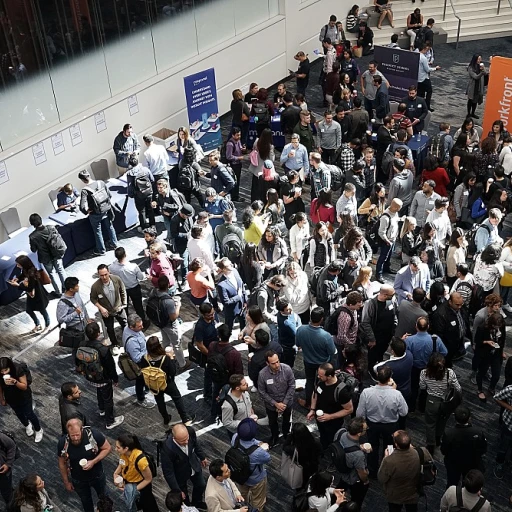
Understanding the link between background checks and corporate security
The Role of Background Checks in Strengthening Corporate Security
Background checks have become a cornerstone for companies aiming to protect their assets, people, and reputation. In today’s business environment, threats are not just physical—they can be digital, reputational, or financial. Security teams and management rely on thorough background screening to identify risks before they impact the organization. This process is crucial for executive protection, security operations, and even for building a reliable security team.
When a company hires for sensitive jobs, such as security officer, director security, or security manager, the stakes are high. A single oversight can expose the business to physical threats, data breaches, or internal fraud. By integrating background checks into the hiring process, companies can:
- Reduce the risk of insider threats and unauthorized access
- Protect sensitive data and physical assets
- Ensure compliance with user agreement and privacy policy requirements
- Build trust with clients and stakeholders
Security corporate strategies now go beyond traditional screening. They involve real time monitoring and ongoing risk assessment to adapt to evolving threats. Security services, including law enforcement partnerships and advanced data analysis, help companies stay ahead of potential risks. This is especially important for global businesses, where cross-border risks and compliance issues add complexity to background screening.
Recent events, such as the Arden Claims Service data breach, have shown how lapses in background check processes can lead to significant vulnerabilities. These incidents highlight the need for robust security measures and continuous improvement in screening practices.
Ultimately, background checks are not just about filtering candidates—they are a proactive tool for risk management, executive protection, and the overall security strategy of a company. As threats evolve, so must the methods and technologies used by security teams to safeguard the business and its people.
Emerging technologies in background screening
Technology Transforming Background Screening
Background checks are no longer limited to manual record searches or simple reference calls. Today, technology is reshaping how companies protect their business, teams, and assets. Security teams and corporate management now rely on digital tools to identify risks and threats more efficiently. The integration of artificial intelligence (AI), machine learning, and big data analytics has made it possible to process vast amounts of data in real time, helping security officers and executive protection teams make faster, more informed decisions.
- AI and Automation: Automated systems can scan criminal records, employment histories, and even social media activity, flagging potential risks that may impact a company’s physical security or reputation.
- Cloud-Based Platforms: These services allow security managers and directors of security to access background check data securely from anywhere, supporting remote work and global operations.
- Biometric Verification: Fingerprint and facial recognition technologies are increasingly used to verify identities, reducing the risk of impersonation and unauthorized access to sensitive areas.
- Continuous Monitoring: Instead of one-time checks, some companies now use ongoing monitoring to detect new threats or changes in an employee’s risk profile, enhancing overall security measures.
For those interested in the intersection of technology and background screening, our in-depth article on navigating the world of cyber background checks explores how digital tools are helping businesses stay ahead of evolving threats.
Impact on Security Careers and Operations
These technological advances are changing the expectations for security careers. Security officers, managers, and teams must now be comfortable with data analysis and digital platforms. The ability to interpret risk indicators from multiple sources is becoming a core skill for anyone in corporate security or executive protection roles. As the landscape evolves, companies are investing in training and updated user agreements and privacy policies to ensure compliance and protect sensitive data.
Ultimately, leveraging modern background check technologies helps companies reduce risks, protect physical and digital assets, and build a more resilient security strategy. Staying informed about these trends is essential for anyone involved in security operations, from security guards to directors of security.
Privacy concerns and legal considerations
Balancing Data Privacy with Security Needs
Modern background checks are essential for corporate security, but they also raise important questions about privacy and legal compliance. As companies collect more data to identify risks and threats, they must carefully manage how this information is gathered, stored, and used. Security teams and management are under increasing pressure to respect privacy policies and user agreements, especially as regulations evolve across regions.Key Legal Considerations for Background Screening
Companies must navigate a complex legal landscape to ensure their background check services comply with local and international laws. This includes:- Adhering to data protection regulations, such as the GDPR or CCPA, which govern how personal data is processed and stored
- Obtaining proper consent from candidates before conducting checks, especially for executive protection or security officer roles
- Ensuring transparency in how background data is used for risk management and physical security measures
- Regularly reviewing privacy policies to align with changing legal standards and business needs
Managing Risks Without Overstepping Boundaries
Security managers and directors must strike a balance between protecting the company and respecting individual rights. Overly intrusive checks can damage trust and may even expose the business to legal threats. On the other hand, insufficient screening can leave the company vulnerable to physical threats or insider risks. The best approach is to tailor background checks to the specific risks associated with each job, especially for sensitive positions in security operations or executive protection.Technology’s Role in Privacy and Compliance
Emerging technologies are helping companies conduct real time background checks while maintaining compliance. For example, secure platforms can automate data collection and flag potential risks without exposing unnecessary personal information. Physical security teams and law enforcement partners are also leveraging these tools to improve efficiency and accuracy. For a deeper look at how access control technologies impact privacy and security, read this article on the role of HID Prox key fobs in background checks.Best Practices for Corporate Security Teams
- Regularly train your security team on privacy laws and ethical screening practices
- Work closely with legal advisors to update user agreements and privacy policies
- Limit access to sensitive data to only those who need it for risk management
- Document all background check procedures to demonstrate compliance if audited
Globalization and cross-border background checks
Challenges of Cross-Border Background Screening
As businesses expand globally, security teams face new challenges in conducting background checks across different countries. The complexity of international regulations, data privacy laws, and varying standards for criminal records can create significant hurdles for companies aiming to protect their assets and people. For security managers and executive protection professionals, understanding these differences is crucial to effective risk management and corporate security strategy.
Key Considerations for International Screening
- Legal Compliance: Each country has its own privacy policy and user agreement requirements. Security officers must ensure that their background check services comply with local laws, including data protection and consent regulations.
- Data Access and Accuracy: Access to criminal, employment, and education records can vary widely. Some countries restrict access to certain types of data, which can impact the thoroughness of the screening process and increase risks for the business.
- Physical and Digital Threats: Global operations expose companies to both physical threats and cyber risks. Security teams need to assess candidates for potential threats to physical security, as well as their access to sensitive business information.
- Verification Challenges: Verifying the authenticity of documents and credentials from different countries requires specialized knowledge and reliable security services. This is especially important for executive and director security roles, where the risk to the company is higher.
Best Practices for Multinational Companies
To help mitigate these risks, security corporate teams should establish clear protocols for international background checks. This includes partnering with reputable global screening providers, staying updated on changing regulations, and training the security team on cultural and legal differences. Real-time updates and collaboration with law enforcement agencies can further enhance protection for physical and digital assets.
Ultimately, integrating robust cross-border screening measures into your security operations supports a safer, more resilient business environment. It helps ensure that only trustworthy individuals gain access to sensitive roles, whether in executive protection, security management, or physical security jobs.
Red flags and risk indicators in modern background checks
Key Warning Signs in Today’s Background Checks
Modern background checks are more than just a routine part of hiring—they are a crucial layer in a company’s security strategy. As threats evolve, security teams and management must pay close attention to certain red flags that can signal risk to the business, its data, and its people.- Inconsistent Employment History: Gaps or frequent job changes can indicate instability or attempts to hide past issues. For roles in executive protection, security operations, or director security positions, these inconsistencies may signal a higher risk to the company’s physical and data security.
- Criminal Records Relevant to the Role: Not all criminal records are equal. For security officer or security manager jobs, offenses related to violence, theft, or fraud are particularly concerning. Security services must assess whether past behavior could pose a threat to corporate security or physical security measures.
- Unverifiable Education or Credentials: Falsified degrees or certifications can be a red flag, especially for senior security team members or those in management. This can undermine the integrity of the security corporate environment and put the company at risk.
- Negative References or Poor Performance Reviews: Consistent negative feedback from previous employers or clients, especially in security services or executive protection roles, can indicate a pattern of behavior that may not align with the company’s security strategy.
- Financial Red Flags: Bankruptcy, significant debt, or a history of financial mismanagement can be a risk indicator, particularly for positions with access to sensitive data or company assets. Security teams should consider these factors as part of a holistic risk management approach.
- Legal or Regulatory Issues: Ongoing litigation, regulatory violations, or breaches of user agreement and privacy policy requirements can signal a lack of respect for law enforcement and compliance standards, which is critical for security guards and security teams.
Real-Time Monitoring and Continuous Risk Assessment
With the rise of real-time data services, companies are moving beyond one-time checks. Continuous monitoring helps identify new threats as they emerge, supporting proactive protection for the business and its people. This is especially important for physical threats and executive protection, where risks can change quickly.Integrating Red Flags into Security Operations
Security managers and directors must ensure that background check findings are integrated into broader security measures. This means sharing relevant risk indicators with the security team, updating physical security protocols, and adjusting access controls as needed. By embedding these insights into daily security operations, companies can better protect their assets and reputation, supporting a safer environment for all employees and stakeholders.Best practices for integrating background checks into corporate security policies
Building a Strong Foundation for Security Integration
Integrating background checks into a company’s security strategy is not just about ticking boxes. It’s about creating a proactive culture that helps protect the business, its people, and its assets from evolving threats. Here are practical steps and best practices that security teams and management can use to make background screening a core part of their corporate security measures.
- Align with Corporate Security Goals: Ensure that background check policies are directly linked to the company’s overall security objectives. This alignment helps the security team focus on real risks, whether they relate to physical threats, data protection, or executive protection.
- Standardize Screening Across Roles: Develop clear guidelines for different jobs and access levels. For example, executive roles or security officers may require more in-depth checks due to their access to sensitive data or physical assets.
- Leverage Technology for Real-Time Updates: Use modern background check services that offer real-time monitoring. This helps identify new risks as they emerge, supporting ongoing risk management and protection efforts.
- Collaborate Across Departments: Security teams should work closely with HR, legal, and IT to ensure background checks are comprehensive and compliant with privacy policy and user agreement requirements. This cross-functional approach helps address both physical and cyber threats.
- Train and Educate the Security Team: Regular training ensures that everyone involved in security operations understands the latest trends, legal considerations, and red flags. This is especially important for security managers and directors of security who oversee larger teams.
- Document and Review Policies: Maintain up-to-date documentation of all background check processes. Regular reviews help adapt to new risks, changes in law enforcement practices, or updates in security services technology.
Continuous Improvement and Risk Adaptation
Background checks should not be a one-time event. Ongoing screening and periodic policy reviews help companies stay ahead of emerging threats. This approach supports a security career culture where every team member—from security guards to executives—understands their role in risk management and corporate protection.
By embedding these best practices, businesses can strengthen their physical security, protect sensitive data, and build trust with clients and employees. The result is a more resilient company, ready to face the complex risks of today’s corporate landscape.













